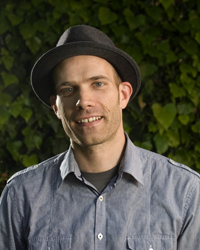Easy as A, B, C . . . from BB
Writers: let’s take a little break to consider what other artists have given us. The one I have in mind today is Robin Williams, whose passing I was so heart‑broken to see in yesterday’s news.
We could all consider the legacy he left behind that lifted us all, and come up with ways to celebrate his life, our lives, the lives of those we hope to touch. Each of us will have our own memories, but I’d like offer a list of some of my favorite films and/or TV shows starring this gifted actor — and perhaps you have some favorites of your own.
Dead Poets Society touched me as a teacher, a human being, a writer.
Good Morning, Vietnam brought me some new clarity — and even closure — about some “old news” while reflecting on a portion of my life when I, along with the rest of the country, was conflicted and confused.
The World According to Garp showed of crazy and quirky from almost every character in it, challenging my reactions to a world I knew nothing about.
Good Will Hunting brought out the teacher in me, again. And the humanity. And the writerly instincts.
Mork and Mindy was a not‑to‑be‑missed weekly jaunt into silliness and laugh‑out‑loud moments.
Patch Adams introduced me to a doctor I wish I had met and grown to know well . . . a brilliant mind and an engaging manner.
Not to mention the many, Many, MANY zany “interviews” on late‑night television.
Which of his works touched you? How can we learn to reach out, as he did, to “our” audiences?
![]() Thanks, Robin Williams, for the zaniness, the smiles, the many laugh‑out‑loud moments, the surprisingly tender touches, and, yes, even the heart‑breaking moments, not least of which is this last one.
Thanks, Robin Williams, for the zaniness, the smiles, the many laugh‑out‑loud moments, the surprisingly tender touches, and, yes, even the heart‑breaking moments, not least of which is this last one.
See you next for Thinkin’ on Thursday!

 National Novel Writing Month (NaNoWriMo) will be coming up sooner than you think. Well, OK, not November’s event, but their summer replacement:
National Novel Writing Month (NaNoWriMo) will be coming up sooner than you think. Well, OK, not November’s event, but their summer replacement: 
 He credits the experience of the “go‑go‑go” structure of the event with lifting the “stultifying pressure to write brilliant, eternal prose . . . ” The pressure of excellence is taken away and a gift replaces it: the pleasure of learning by doing . . . of taking risks . . . of making messes . . . of following ideas just to see where they lead. Moreover, he claims, writing for quantity rather than quality “had the strange effect of bringing about both.”
He credits the experience of the “go‑go‑go” structure of the event with lifting the “stultifying pressure to write brilliant, eternal prose . . . ” The pressure of excellence is taken away and a gift replaces it: the pleasure of learning by doing . . . of taking risks . . . of making messes . . . of following ideas just to see where they lead. Moreover, he claims, writing for quantity rather than quality “had the strange effect of bringing about both.”